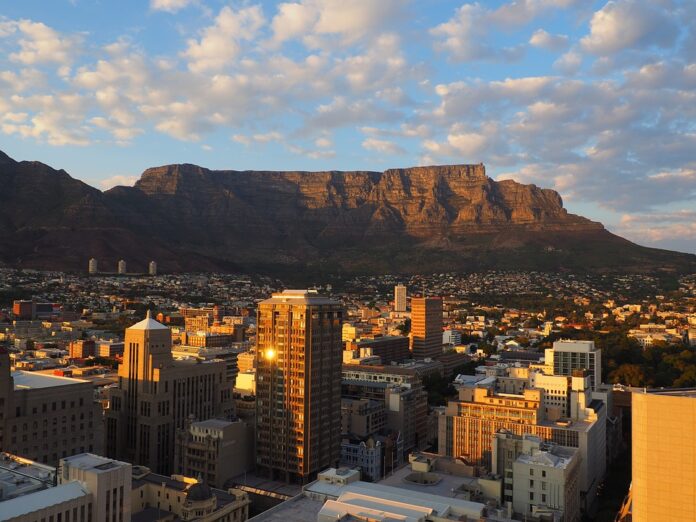South Africa had the strictest COVID-19 lockdown in the world. Presently the numbers of contagions are rising exponentially, however, the country is relaxing the lockdown phases. South Africa has no choice, due to cultural, poverty and in particular the fragile economic condition.
Nevertheless, even with these strict lockdown conditions, it has become the most infected country in Africa. While the numbers of the contagions are skyrocketing, the governments’ decisions are perplexing.
The governments are busy preparing for mass burials: more lands are being obtained to increase the sizes of cemeteries and mass graves are already being planned and dug. That is, the South African government knows a full-blown war with the virus is underway, and casualties are inevitable.
Did the strictest lockdown fail? Did it prove lockdowns are unnecessary? No! the lockdown did it’s job, and showed it as a valuable tool.
The reasons are due to the living standards of South Africa, the economic state of the country, and the culture of the people.
Economically, South Africa is a mix of economic incomes, from extreme poverty to high wealth. The vast majority of South Africans fall under the lower income to impoverished. Almost every town has informal settlements, constructed of shacks, communal toilets and communal taps. Living in informal settlements is a tough life, whereby entire families live in a 1 room shack. Additionally, the shacks are built extremely close together, sometimes connected. The streets are usually mere walkways.
The minimum wages in South Africa are fairly low, at recommendations of between R11.00-R20.00 (ZAR) per hour, which equates to an income of between R2,000.00-R3,500.00 (ZAR) per month (ca €100.00-€200.00/month). With family in the rural areas, it is often that one sends 50% of their incomes to their home-towns. Therefore, to make more of an income, 12-hour shifts are common, working Monday to Saturday. It’s a hard life.
It is no wonder, then, that weekends are a time to unwind. There is nothing better than unwinding by sitting around a fire drinking beer with friends; talking about soccer; and smoking cigarettes.
Cigarettes are an important part of many lives. Daily stresses are high: the country is plagued with high crime, living expenses are high, the country is experiencing many hours of no electricity (load-shedding), cost of transport is always increasing, and therefore cost of food is always rising. Smoking is one of the few ways of easing one’s daily stresses.
Most importantly, socialising on weekends with beers and cigarettes is a culture which has been practiced for millennia. It is a way of keeping some of the traditional cultures flowing in the overpopulated informal settlements.
Being the strictest lockdown of any country, all alcohol and cigarettes were banned. No sitting around fires. No manner of relaxing. Even exercising outside and walking dogs were banned. It was expected for entire families to stay inside a one-roomed shack. Socially, psychologically, this could never be possible for a long period of time. The risk of mass rioting was high, and being South Africa, riots can very quickly turn violent. This was one of the largest concerns of the government.
South Africa is also a HIV/AIDS and tuberculosis infected country. This increases the risk of people being severely infected with the COVID-19 virus. Once the virus enters an informal settlement, the virus is sure to spread with alarming speed, and potentially devastating consequences. This is inevitable.
If the pandemic is inevitable, then why the lockdown? Why put the vulnerable citizens through the stress? Instead of giving up before the fight, the South African government analysed the situation, analysed their weak spots, and planned. Their first priority was to get the country ready, and this meant buying time.
Getting everybody home, staying indoors, preventing drunk driving and pub fights, reducing smoke-related lung issues, reduced the number of patients at hospitals. This bought time for the hospitals to plan, re-stock, train staff and coordinate pandemic procedures. The lockdown bought time for the government to get masks, test kits, get testing laboratories ready, and even cemeteries the chance to dig the graves. For the general population, it gave them: a feeling of what is to come, what to expect, and time to say good buy to loved ones.
South Africa was already in a recession before the pandemic started. They were previously classes as ‘junk status’ by the Moody’s rating agency. Due to years of corruption, the economic state of South Africa is in a terrible position. As much as the current government is trying to repair the economy, their insistence and force of BEEE (Black Economic empowerment) on industry is classed as a reversed-apartheid by many; many businesses are crumpling as a result and investors are seeing South Africa as a risk country, unstable. The highly skilled are preferring to immigrate than to stay in South Africa.
For the lower-income, this puts unemployment at very high levels. To not work during lockdown does mean no income for the majority. And, the government can’t pay them. A long lockdown is an even worse death-sentence than the COVID-19 virus.
South Africa has no choice but to get back to work. As their numbers of infections are increasing, businesses are re-opening. And this means the restaurants and pubs: i.e. socialising is becoming legal again.
One has to ask themselves, what is more important, the lives of the few infected, or the lives of the many who need to eat?
The government has made their choice, they have chosen who will live and who will die.








